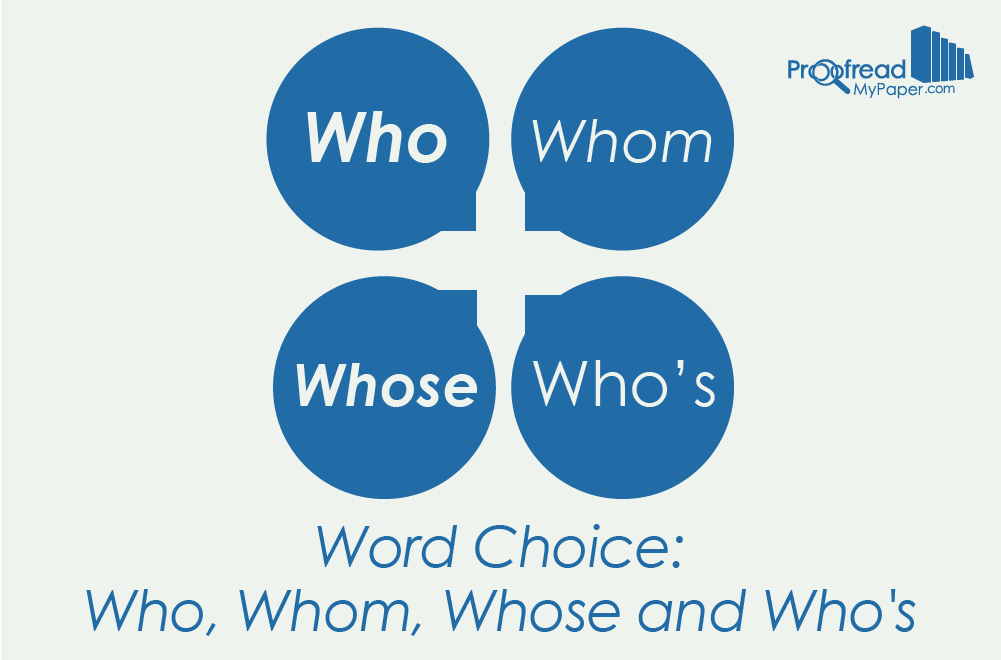We all regularly use the word “who in speech. Nevertheless, many people feel confused about when to use variations of this term, particularly “whom,” “whose” and “who’s.”
In our daily lives, this might not be a major issue (only pedants like us worry about getting “who” and “whom” the right way round in casual conversation). But in academic writing, you’ll want to avoid mistakes in order to maximize the clarity and impact of your work.
Who or Whom?
Mixing up “who” and “whom” is a classic grammatical error. Both are used when identifying or asking about a person, however, so what exactly is the difference?
The key is discerning between the “subject” and “object” of a sentence. To illustrate this, we’ll introduce Laurel and Hardy to the situation.
|
Subject |
Verb |
Object |
|
Olly… |
…tripped… |
Stan. |
Here, the subject of the sentence is Oliver Hardy, since he’s performing the action (i.e., tripping Stan). Stan Laurel, meanwhile, is the object of the sentence, since the action is being performed upon him.
The key thing here is that “who” always applies to the subject of a sentence, whereas “whom” refers to a person when they are the object of a sentence.
Thus, we use “who” if talking about the person performing an action (the subject) and “whom” for the person being acted upon (the object). For instance:
Who tripped Stan? Olly is the person who tripped Stan.
Find this useful?
Subscribe to our newsletter and get writing tips from our editors straight to your inbox.
Whom did Olly trip? Stan is the person whom Olly tripped.
In the first example above, we’re asking about (and subsequently identifying) the subject of the sentence “Olly tripped Stan,” so “who” is used. In the second, we’re focusing on the object of the sentence, so “whom” is the correct term. Remember:
Who = Subject
Whom = Object
It’s worth keeping in mind that both “whom” and “him” are object pronouns and both end in an “m.” Associating the “m” at the end of these words with being the object of a sentence can make it easier to tell “who” and “whom” apart.
Whose or Who’s?
The distinction between “whose” and “who’s” is a little simpler, despite the fact they’re pronounced identically. It’s just a matter of the difference between a possessive and a contraction.
The possessive is “whose,” used when referring to or asking about something that belongs to someone, such as Stan Laurel’s hat:
Whose hat is that? It’s Stan’s hat.
“Who’s,” meanwhile, is a contraction of “who is,” so can only be used when we would otherwise use both words:
Who’s the heavier of Olly and Stan? Olly is the one who’s heavier.
Contractions like this generally aren’t used in formal writing, though, so it’s usually better to avoid them in college papers.
The reason people get these terms confused is that we sometimes indicate a possessive with an apostrophe. In this case, however, the apostrophe indicates the missing letter in “who is.”
